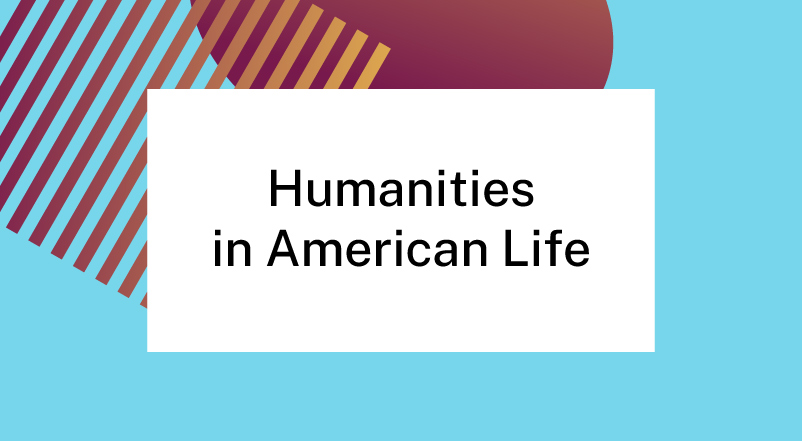“His parents wanted him to accept who he was—a zombie,” the narrator says, “And zombies don’t eat veggies.” Afterward, you can turn back to the Cabin Fever Kids collection, where there are thoughtful questions for readers to ask about Mauricio’s dilemma, like “How are you different from or the same as your family?” Read about Humanities Washington’s “Cabin Fever Kids” program.

Building Community Relationships During a Pandemic: PHC’s Teen Reading Lounge
The core of Pennsylvania Humanities Council’s (PHC) award-winning, nontraditional book club, the Teen Reading Lounge (TRL), has always been relationships—between young adults, librarians, and communities who ask questions, share ideas, and develop together. So when schools and libraries closed earlier this year after the pandemic hit, relationships were still going to be at the heart of whatever way the program adapted. Read more.

Michigan Humanities Explores the Urban/Rural Divide
How long has the divide between urban and rural communities existed? Longer than you think. And how big is that divide? Not as vast as it might seem. Read more here.

Democracy as a Way of Living: Jamelle Bouie with Oregon Humanities
“I think the reason people are motivated [to vote]…is less because they think their individual vote is going to be decisive and more because voting, casting a ballot, is sort of part of a set of things you do as part of a community,” Bouie told Davis. “This is civic participation, it is a collective endeavor that we all do to sort of signal to each other our investment in this idea of self-government and this idea of choosing our leaders.” Read more here.

Building Trust: Telling Stories
“Many stories, one people,”—that’s the tagline for the North Carolina Humanities Council. In a webinar on October 22, a panel of scholars and leaders across disciplines talked about what that tagline looks like when it comes to creating an inclusive space to explore the state’s difficult histories and trace how those stories diverge and overlap.

Nevada Humanities: Making Voices Heard
When you walk into an art gallery, do you move clockwise or counterclockwise? Are your eyes drawn to the color, the medium, the framing, or the other people milling around? These are just a few questions Nevada Humanities asked themselves when they were adapting their latest exhibition, “Resiliency: A Blooming Diaspora,” online. A lot about the way we move in the world has changed this year because of the pandemic, and walking through a gallery is no exception, but Nevada Humanities knows that doesn’t mean the experience is any less powerful. Read on.

FSHC Awards Four Schwartz Prizes for Outstanding Humanities Public Programming
Winning council programs were selected in two categories and included California Humanities, Humanities Texas, Vermont Humanities, and Humanities Washington

A Soundtrack for 21st-Century Rural Kansas
Ever hear a song on the radio and feel transported to a place in your mind? John Denver’s “Take Me Home, Country Roads” or Sam Cooke’s “A Change is Gonna Come” tell the story of America like only music can. Humanities Kansas wanted to capture that feeling as a state-specific part of the “Crossroads: Change in Rural America” tour, a nationwide travelling exhibition focused on rural communities. So they came up with a program called “The Soundtrack of Rural America,” a curated playlist made for and by Kansans. Read more here.

Uncovering the News: The Who, Where, When, Why, and How of Media Consumption Today with Georgia Broadcasting and Georgia Humanities
“No matter where you get your news, the goal of this program is to help you recognize how to get the best information available as a responsible news consumer, so that you can contribute to our democracy as an informed citizen,” said Laura McCarty, president of Georgia Humanities. Read more about his “Democracy and the Informed Citizen” program.

Haudenosaunee Women and 1,000 Years of Political Agency
“The story I’m going to tell you… is really the beginning of the women’s movement. The truth is, there was an incredible party going on well before we ever arrived,” began Dr. Sally Roesch Wagner, the guest lecturer for “Women Voted Here: Before Columbus,” a Vermont Humanities virtual event on October 21, 2020, hosted by St. Michael’s College. Read more here.

Mellon Foundation Awards $1.96 Million to FSHC to Support Nationwide Public Humanities Programs on Civic and Electoral Participation
“The state humanities councils have a long record of creating and conducting programs that respond to the unique issues and concerns facing their communities and exploring where community priorities diverge and overlap. This initiative will offer spaces to learn about the electoral process, the role and impact of civic participation, and why it matters,” said Phoebe Stein, president of the Federation of State Humanities Councils. Read more.

Interview with Executive Director Brenda Thomson, Arizona Humanities
Our role in moving humanities forward has not changed. It is our mission… to build a just and civil society by creating opportunities to explore our shared human experiences through discussion, learning, and reflection. It has been central to our work and all that we do. Like many councils, we are facing current challenges head on, listening to the needs of communities, and making sure that we help people see the world around them with new eyes. That is the beauty of learning. Sometimes what we see is painful, but the lessons we learn can help us grow. Read more from AZ Humanities Executive Director Brenda Thomson.
